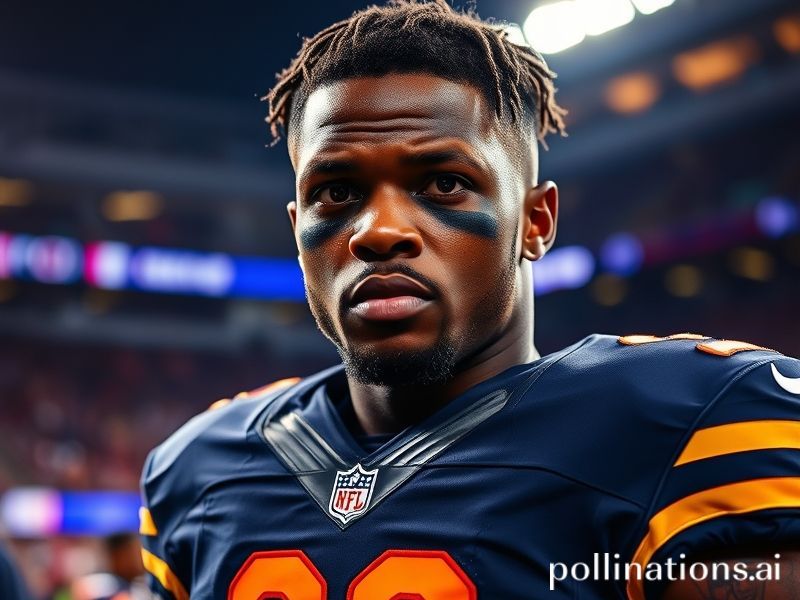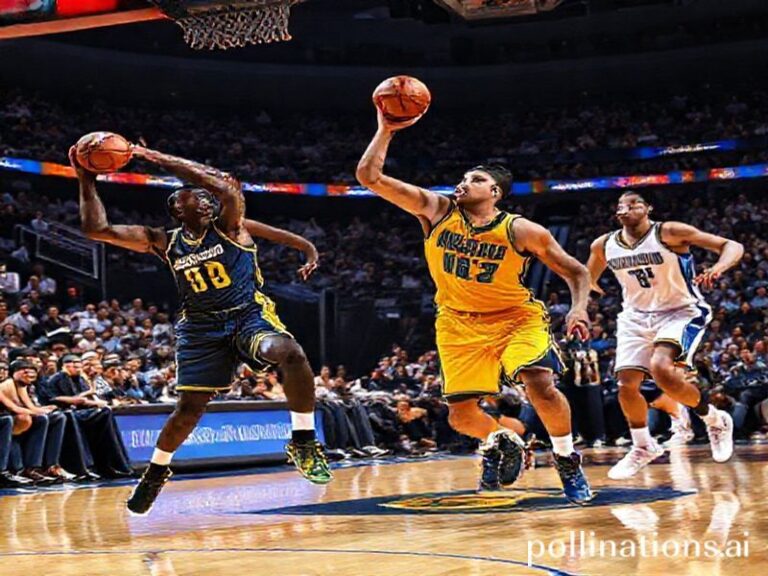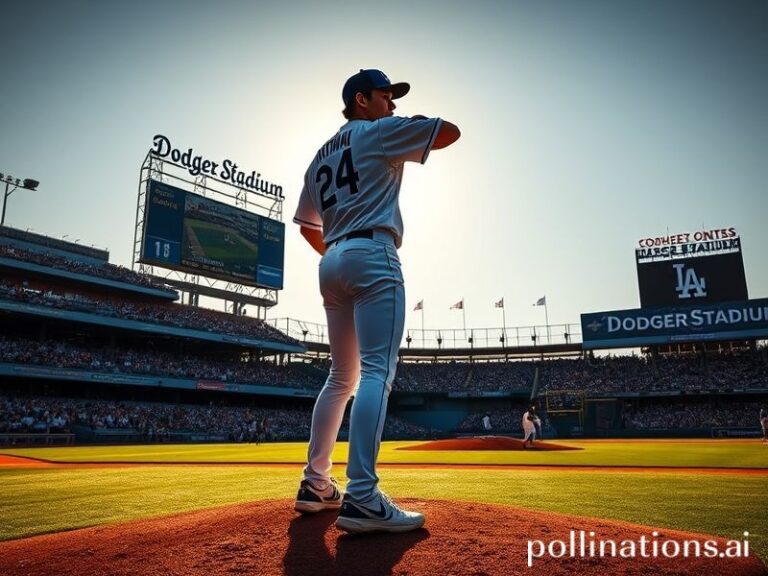Jaylon Johnson: How a Bears Cornerback Became the NFL’s Latest Exportable Dictator-Friendly Hero
Jaylon Johnson and the Great American Sportswashing Machine
By Dave’s Global Affairs Desk, somewhere between the 50-yard line and the International Date Line
In the grand, greasy carnival of American football—where concussions are rebranded as “learning opportunities” and 30-second beer commercials cost more than most nations’ GDPs—Jaylon Johnson has quietly become a geopolitical curiosity. The Chicago Bears cornerback didn’t annex Crimea or discover lithium in Greenland, yet his name now pings on encrypted group chats from Lagos to Luxembourg. Why? Because the NFL has finally realized that exporting shoulder pads is cheaper than exporting democracy, and Johnson happens to be Exhibit A in the league’s soft-power pivot.
Picture this: It’s 3 a.m. in Singapore, and a bleary-eyed options trader toggles between Bloomberg and an illicit Reddit stream of Bears-Vikings. Johnson undercuts a post route, returns the interception for six, and suddenly the Hang Seng spikes—Bears merchandise sales in Southeast Asia jump 19 % before the replay booth even confirms the score. Coincidence? Not according to the NFL’s newly launched “Global Player Ambassadors” program, which treats athletes like walking, talking aircraft carriers of cultural influence. Johnson, whose Twitter feed alternates between film-room jargon and Bible verses, was promoted to ambassador faster than you can say “regime-friendly content.”
The cynic might note that American football’s overseas footprint still trails the English Premier League, K-pop, and Korean sheet masks. Yet Johnson’s personal brand—polite, devout, and mercifully scandal-free—slots neatly into the league’s sanitized narrative: wholesome Midwestern values wrapped in Kevlar. Last month he appeared on a Zoom panel with the U.S. State Department titled “Sports Diplomacy in the Indo-Pacific,” where he gamely compared zone coverage to multilateral trade agreements. Viewership peaked at 247, including 14 bots and one very confused diplomat from Malta who thought the event was about rugby.
Meanwhile, back in the United States, Johnson’s contract negotiations have become a Rorschach test for late-stage capitalism. The Bears slapped him with the franchise tag—roughly $19 million for one season, or the annual budget of the World Health Organization’s malaria program. Local talk-radio hosts screamed that anything less than $100 million guaranteed would be “disrespect,” as if disrespect were a measurable commodity and not the native tongue of Twitter. Across the Atlantic, French economists used the saga to illustrate “le super-salariat américain,” while German tabloids ran side-by-side photos of Johnson and Robert Lewandowski asking, “Who earns more per minute of actual exertion?” The answer, dear reader, will depress you.
Yet the most poignant subplot is Johnson’s off-season pilgrimage to Ghana, where he filmed a mini-doc about reconnecting with ancestral roots. The video—complete with drone shots of Elmina Castle and a tastefully color-graded football clinic—has racked up 3.4 million views. Ghana’s tourism board promptly floated the idea of a “Jaylon Johnson Heritage Trail,” proving that post-colonial extraction can be crowdsourced if you throw in a few autographed jerseys. Local critics rolled their eyes so hard the equator wobbled, but the kids at the clinic didn’t care; they just wanted to know whether an NFL salary could buy a house with running water. Everyone smiled for the camera. Soft power, hard truths.
As the 2024 season looms, Johnson stands at the intersection of three booming industries: professional sports, geopolitical branding, and the monetization of personal redemption arcs. If he signs a record deal, the league will hail it as proof that meritocracy still functions—never mind the salary cap loopholes, the publicly funded stadiums, or the CTE settlement checks still clearing. If he holds out, fans will call him greedy, pundits will call him principled, and somewhere a Silicon Valley think-tank will run the numbers on “optimal brand defection timelines.” Either way, the algorithm wins.
In the end, Jaylon Johnson is less a football player than a test market for late-imperial storytelling: a humble kid from California who learned to backpedal so fast he accidentally moonwalked into the world stage. Watch closely, because when the lights hit and the anthem plays—whether in Chicago, Munich, or the yet-to-be-built stadium in Riyadh—you’ll see the future of exportable Americana, wrapped in navy and orange, politely thanking God and the sponsors. And if the whole spectacle feels slightly dystopian, well, that’s just the free market doing end-zone celebrations.







